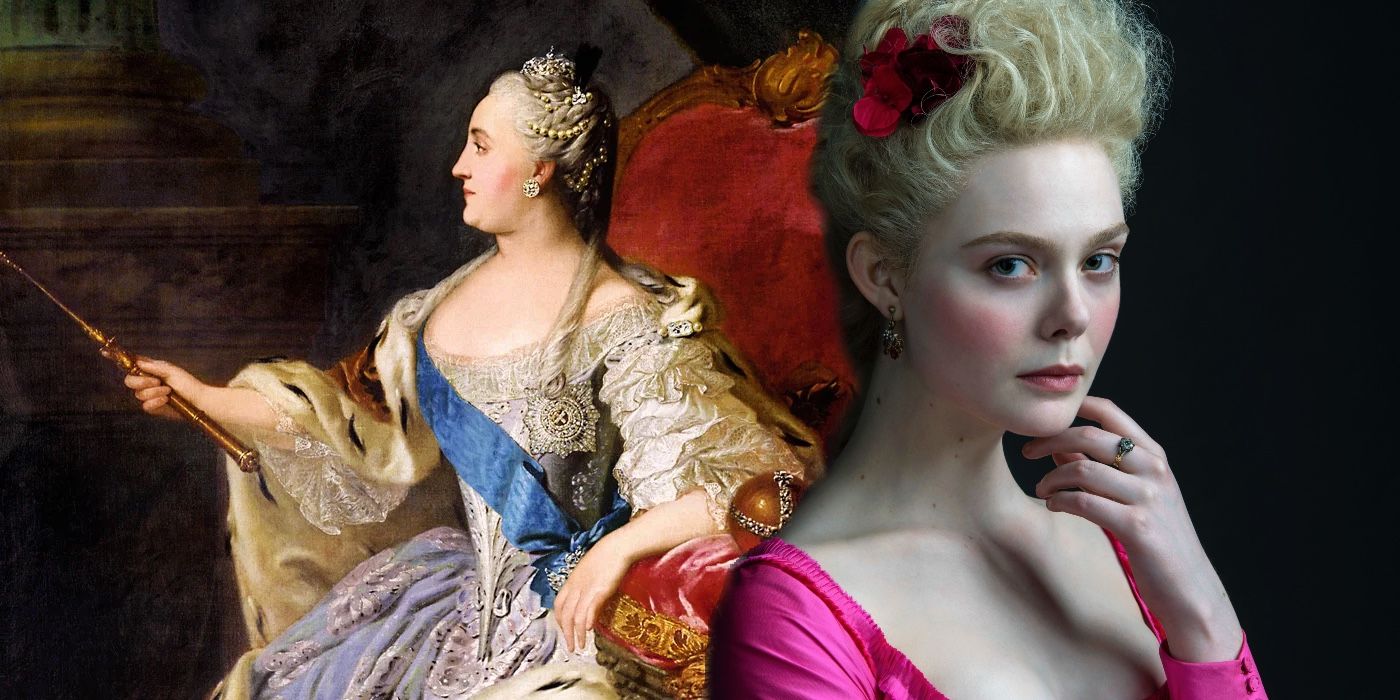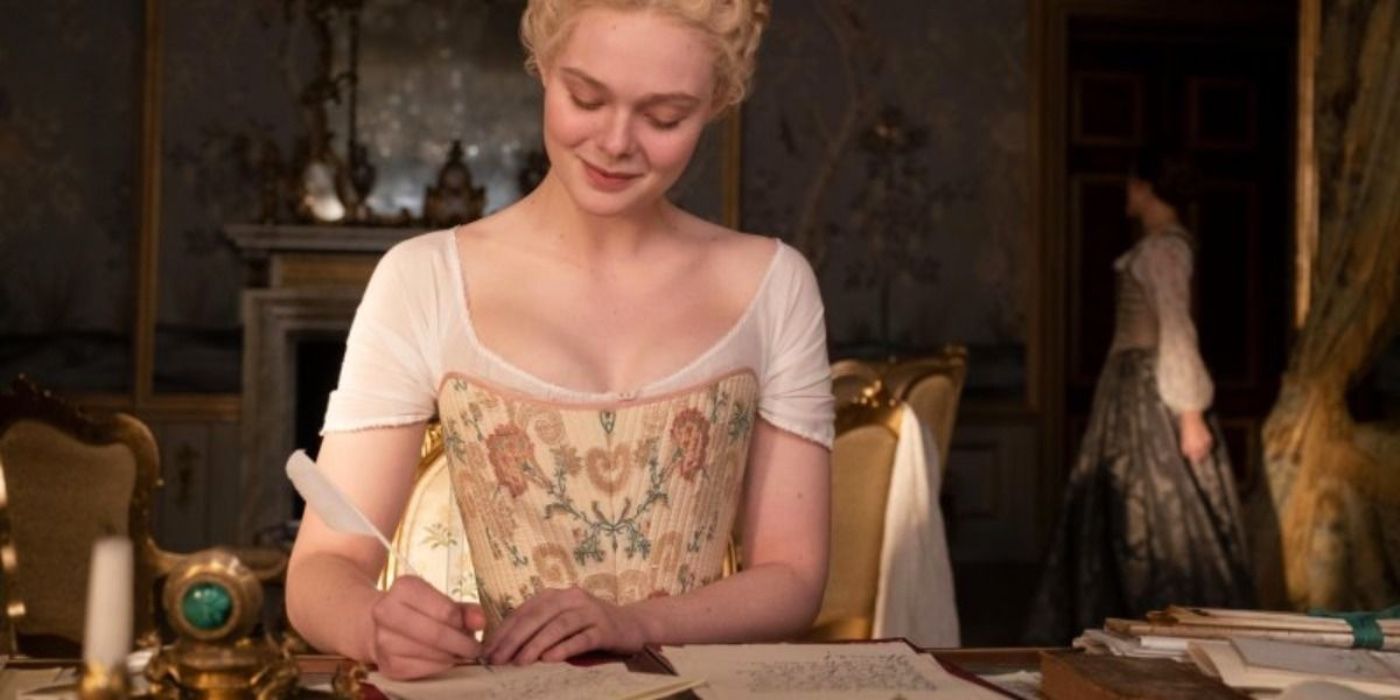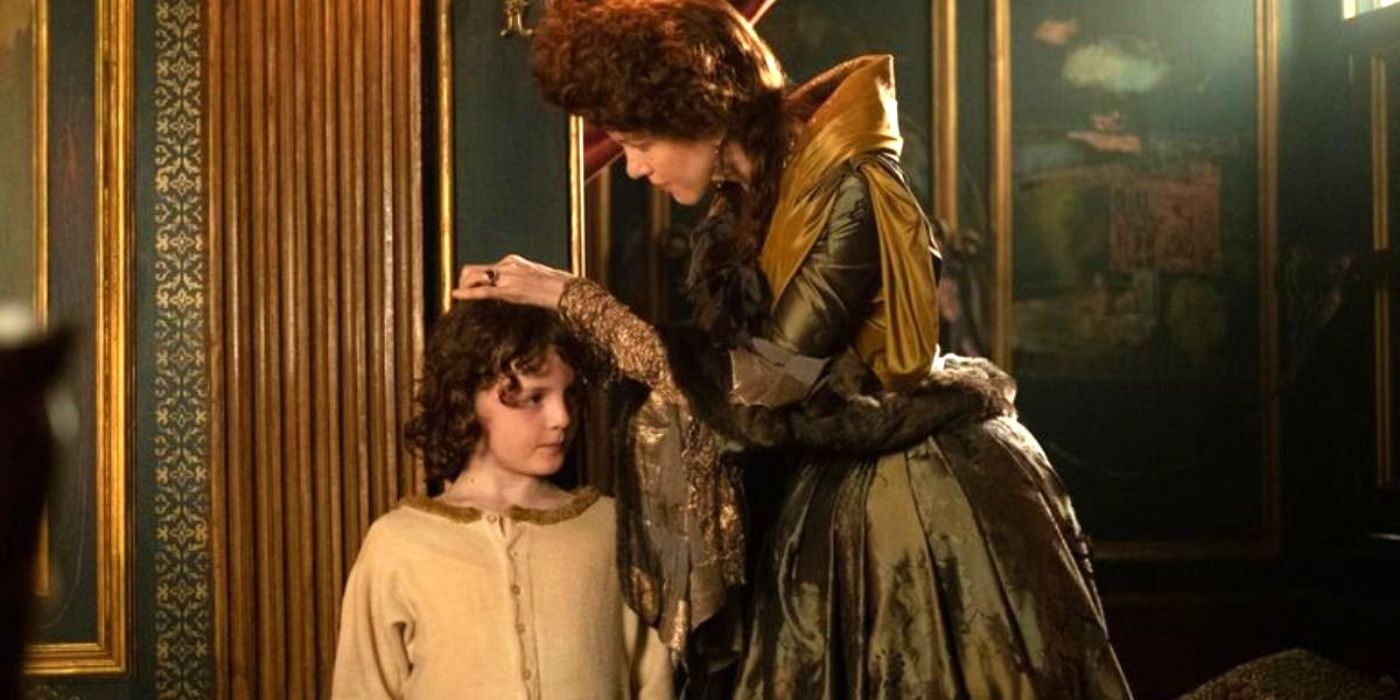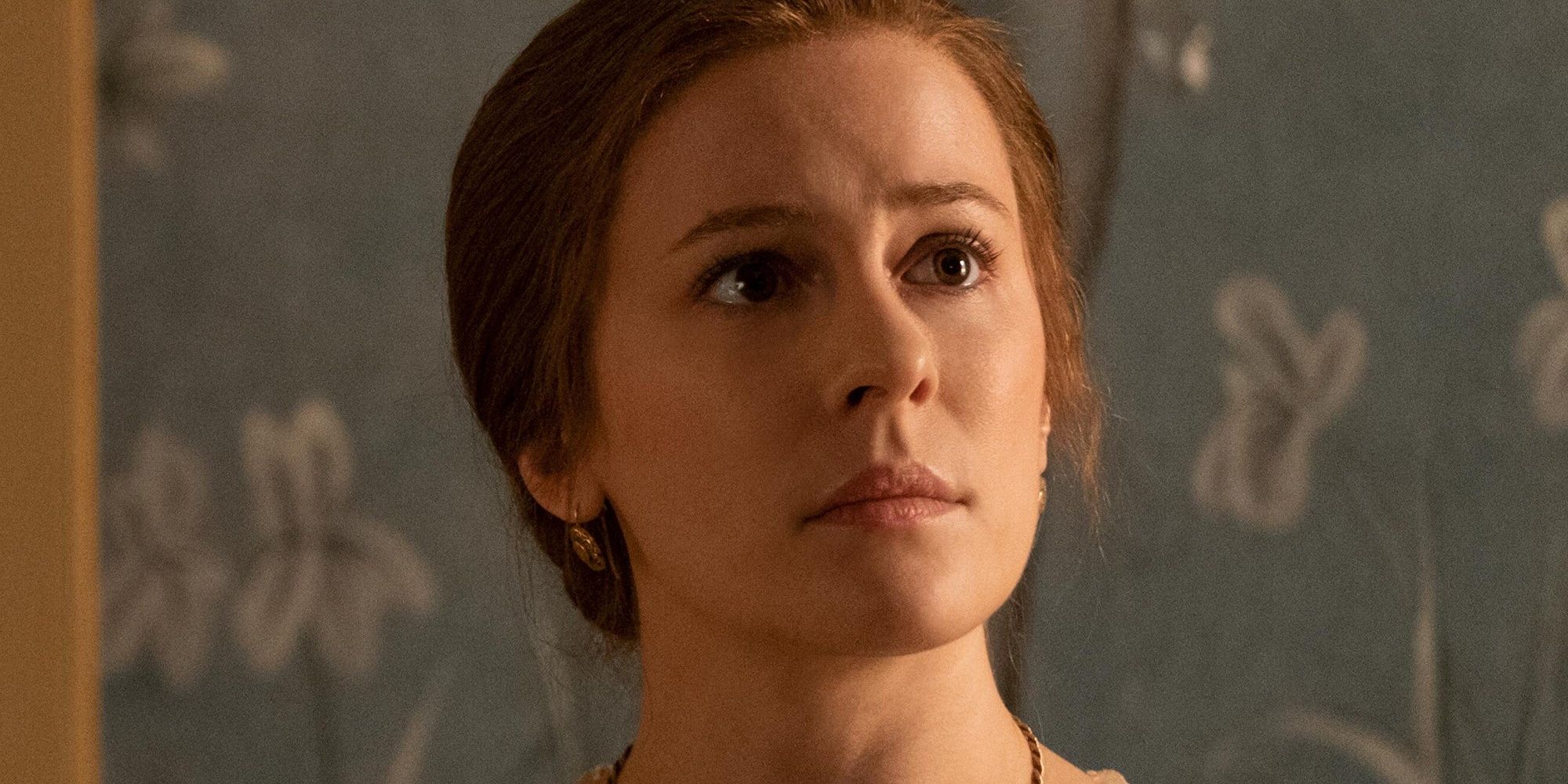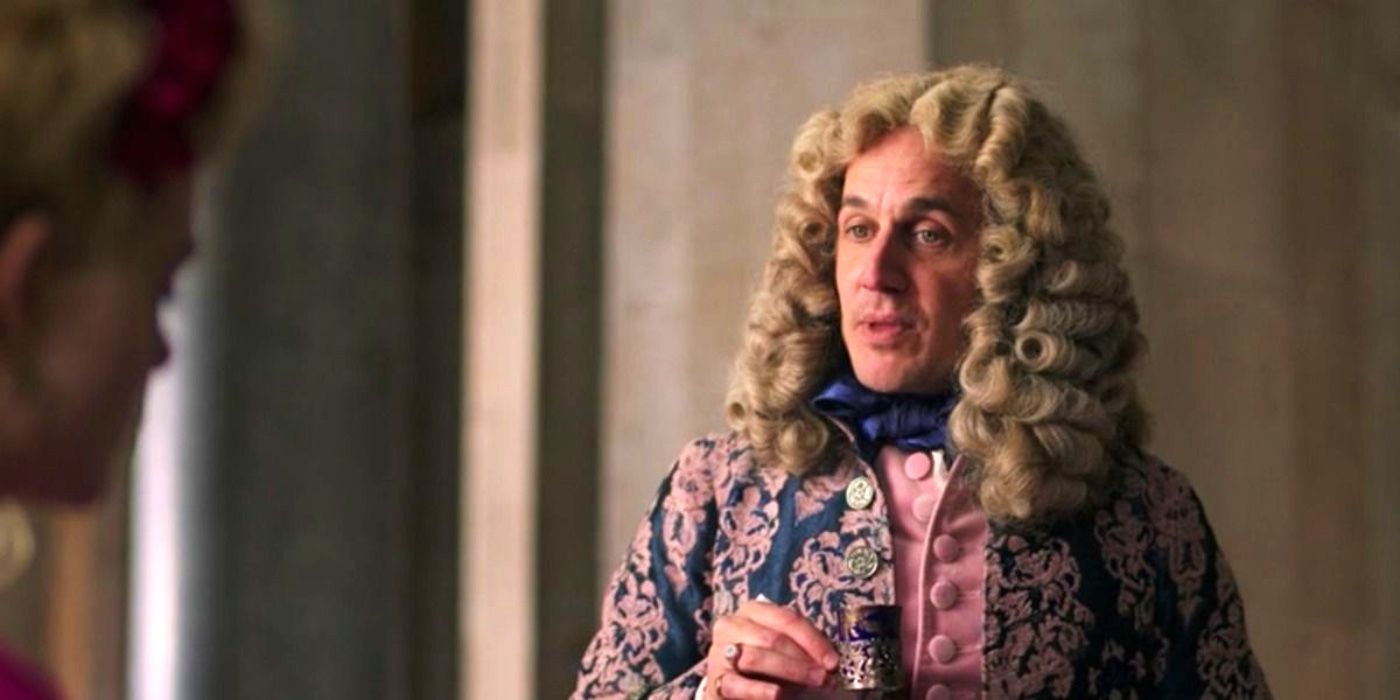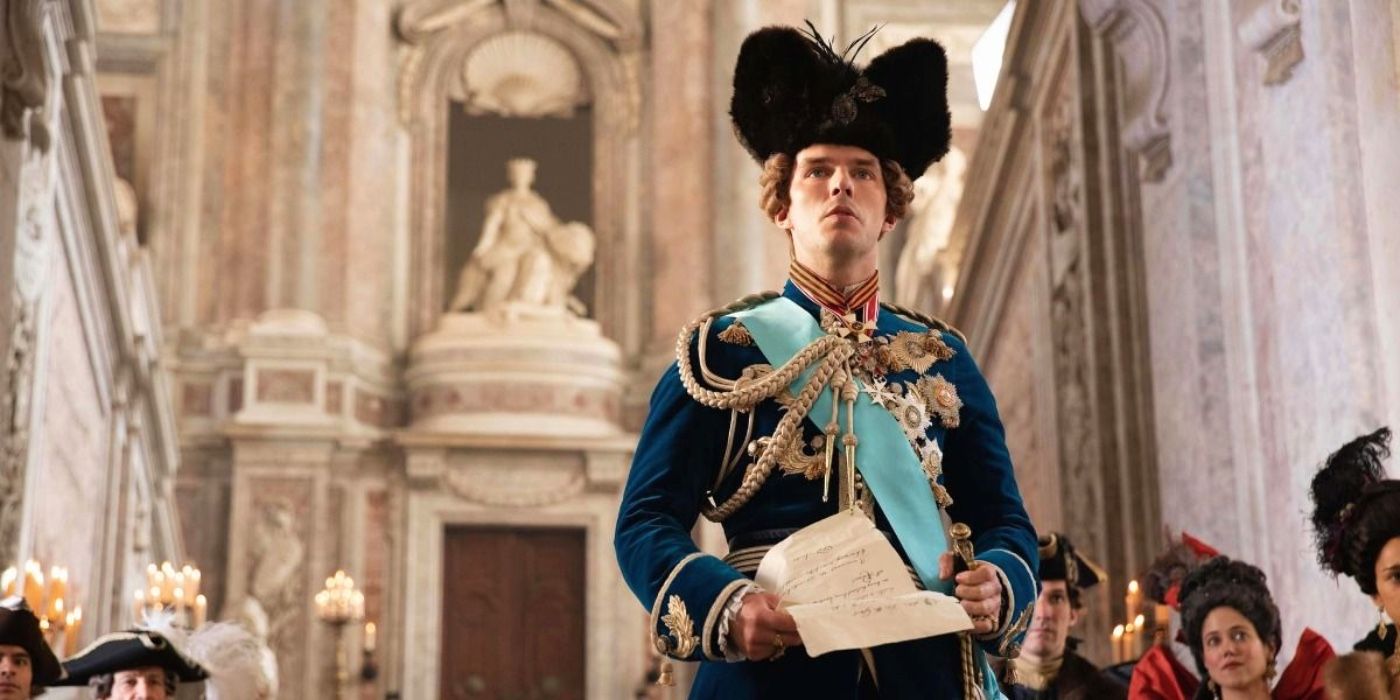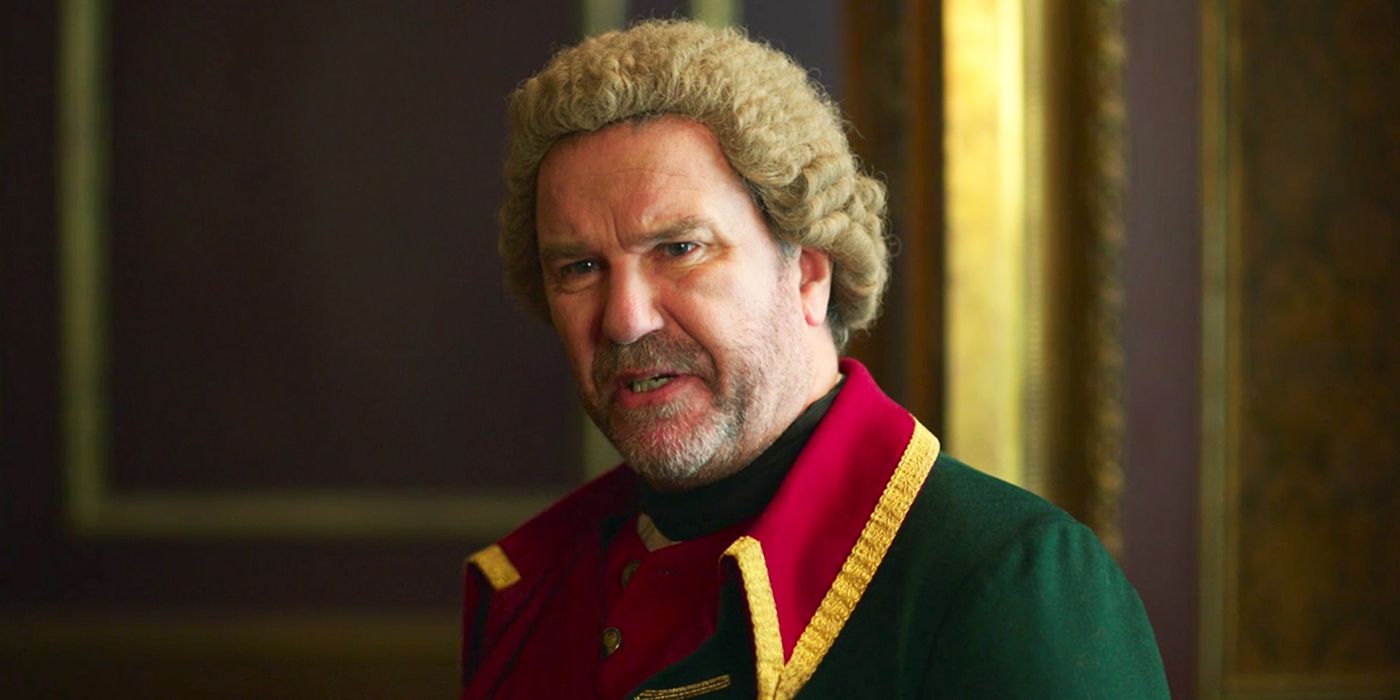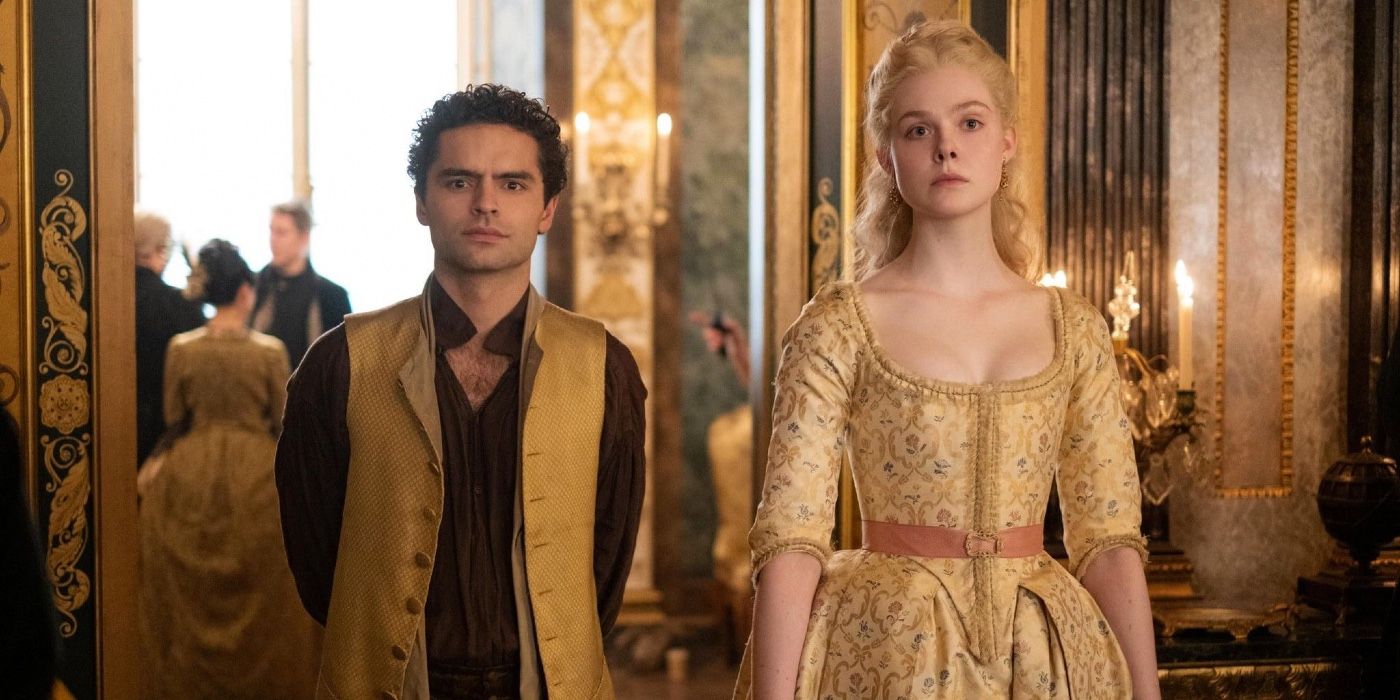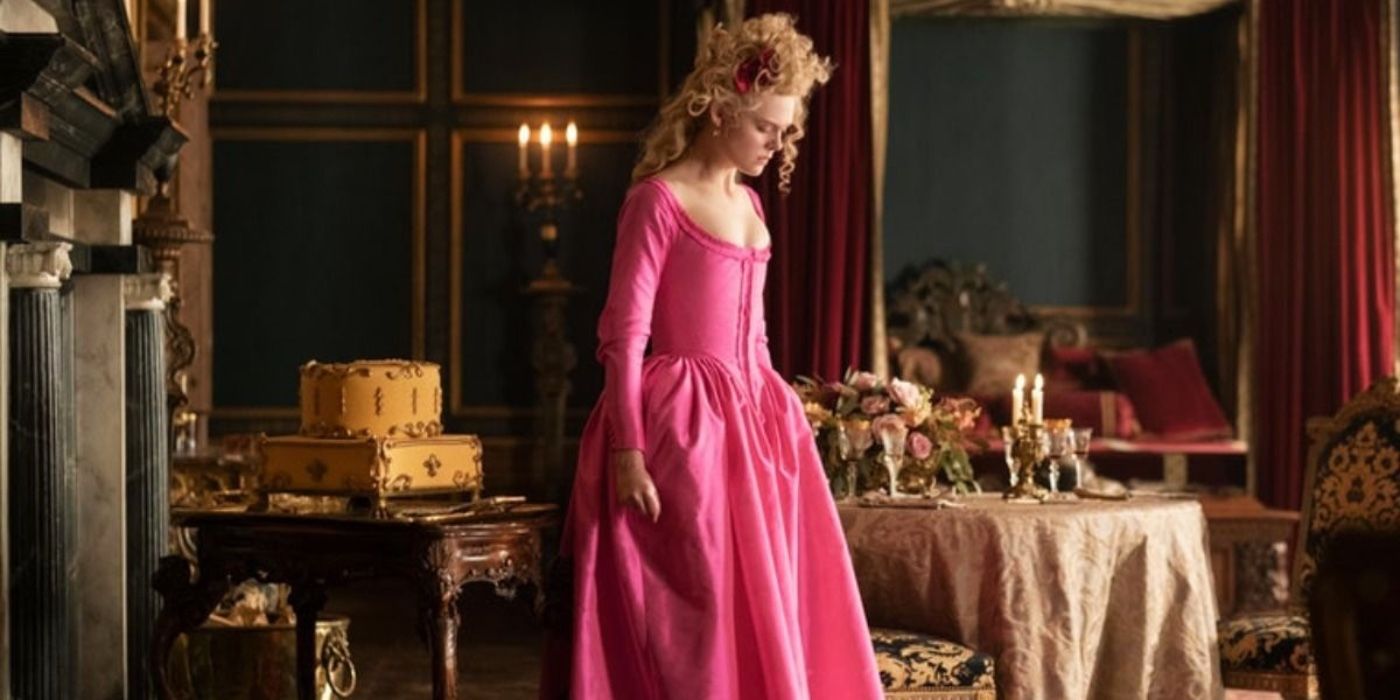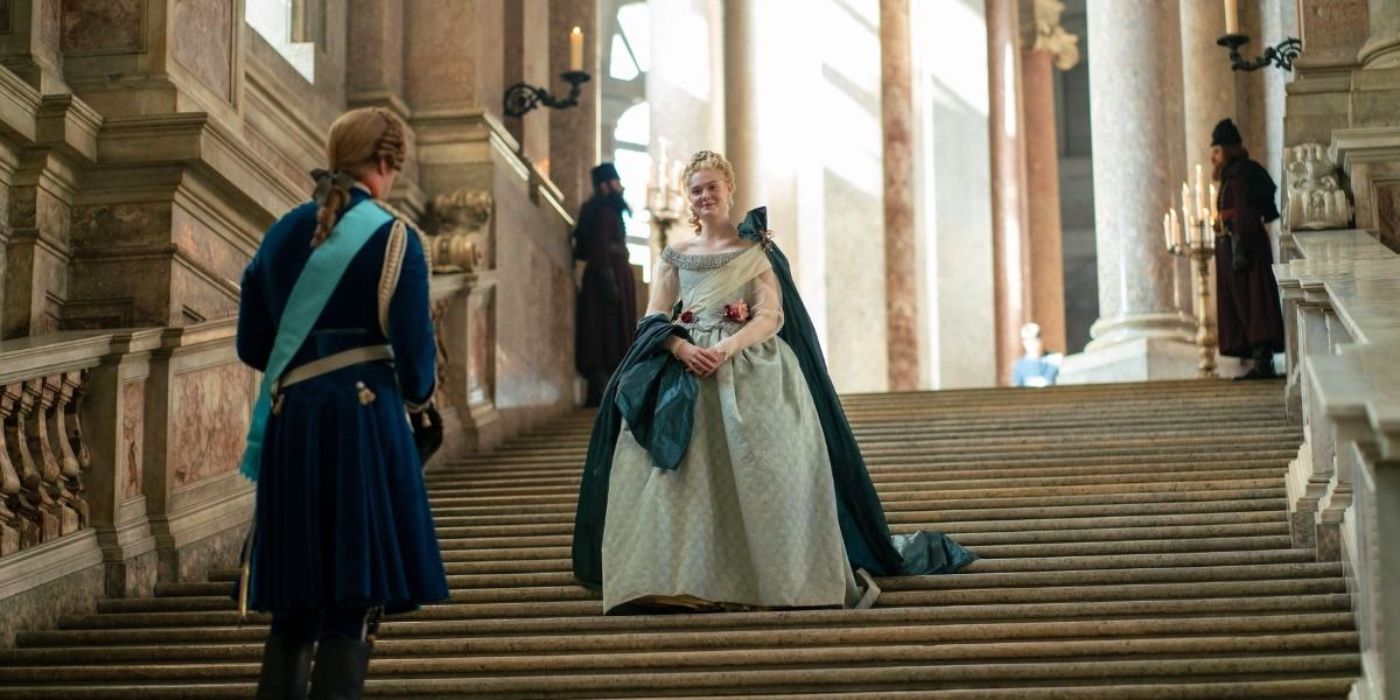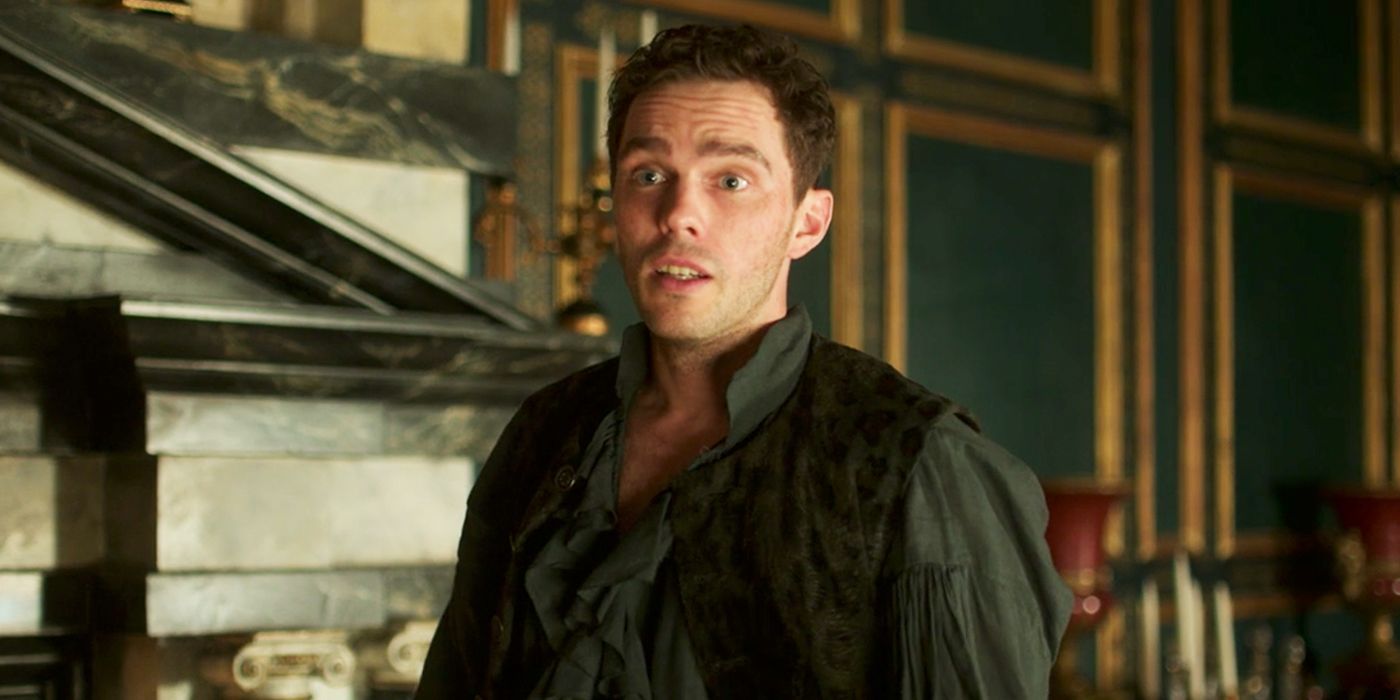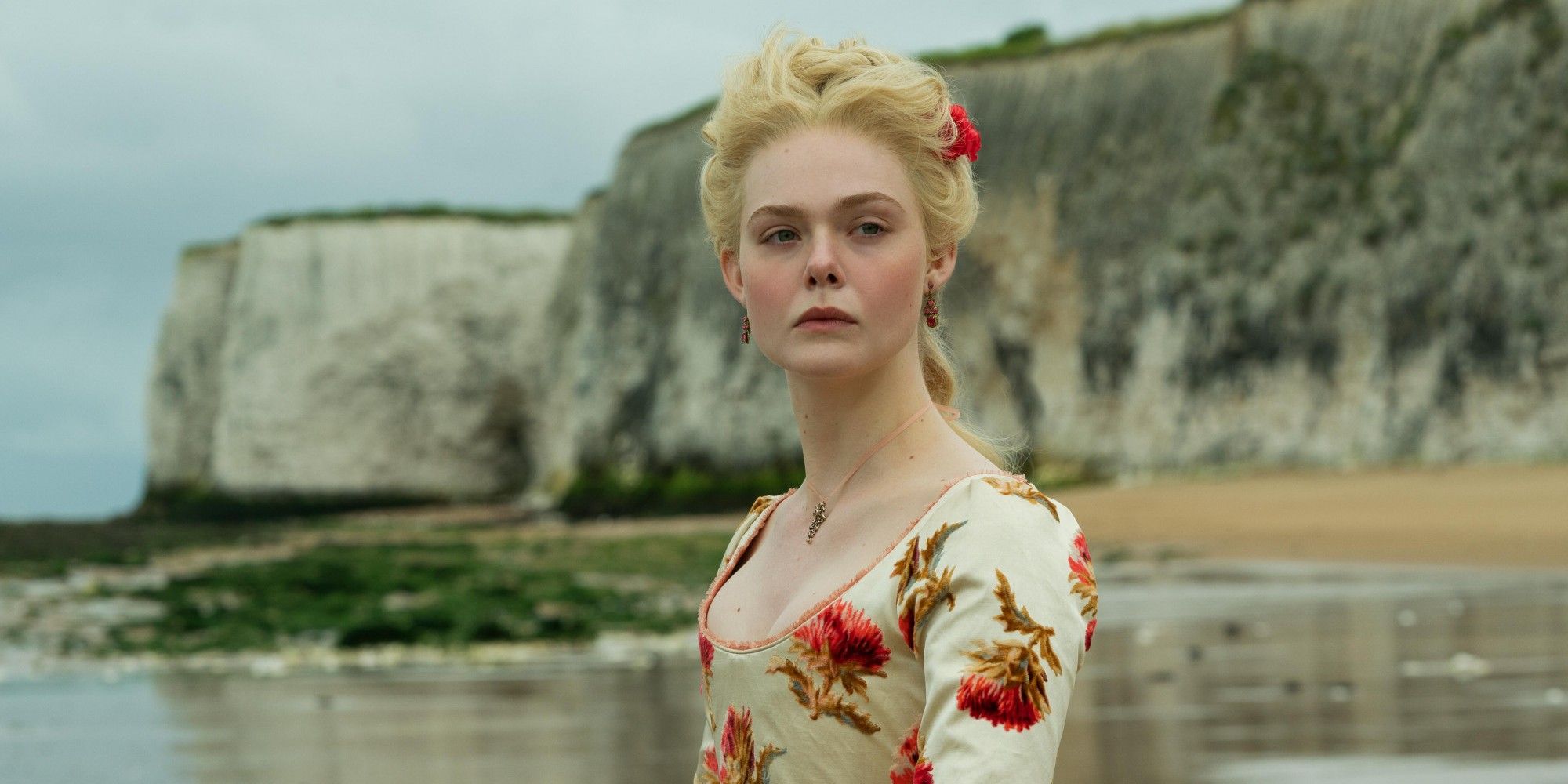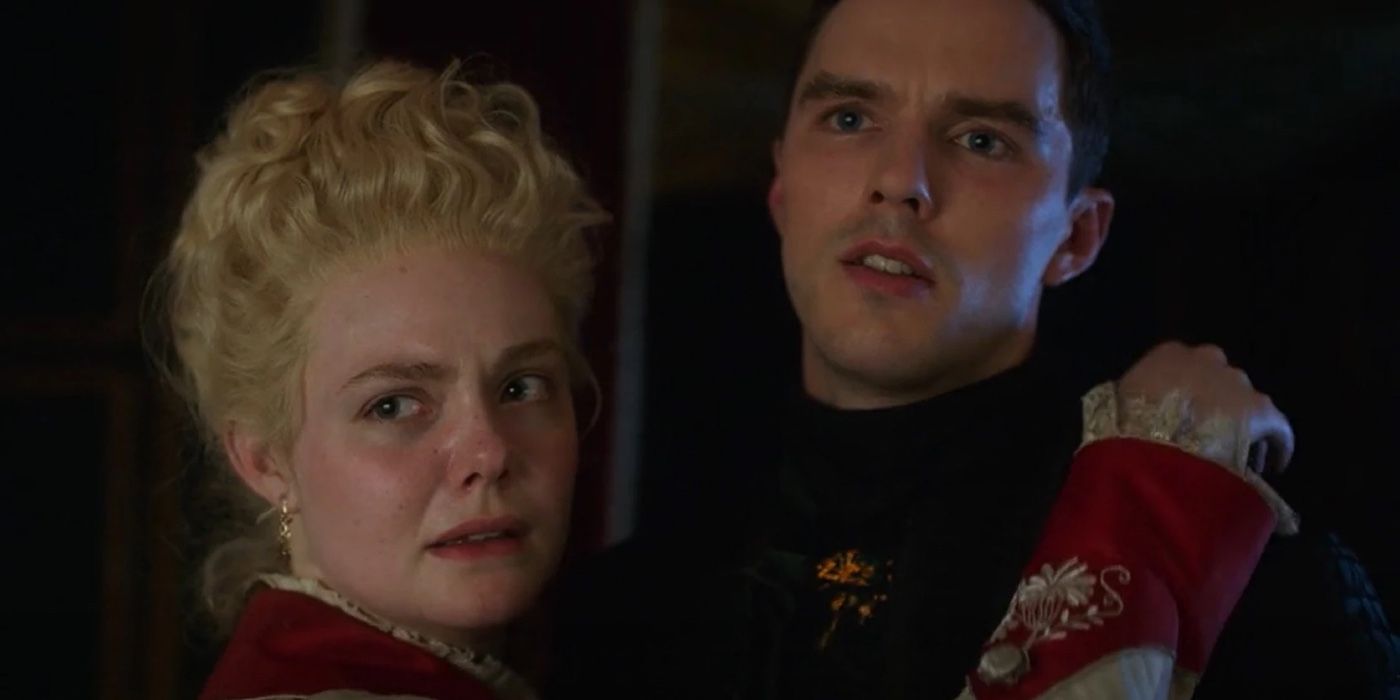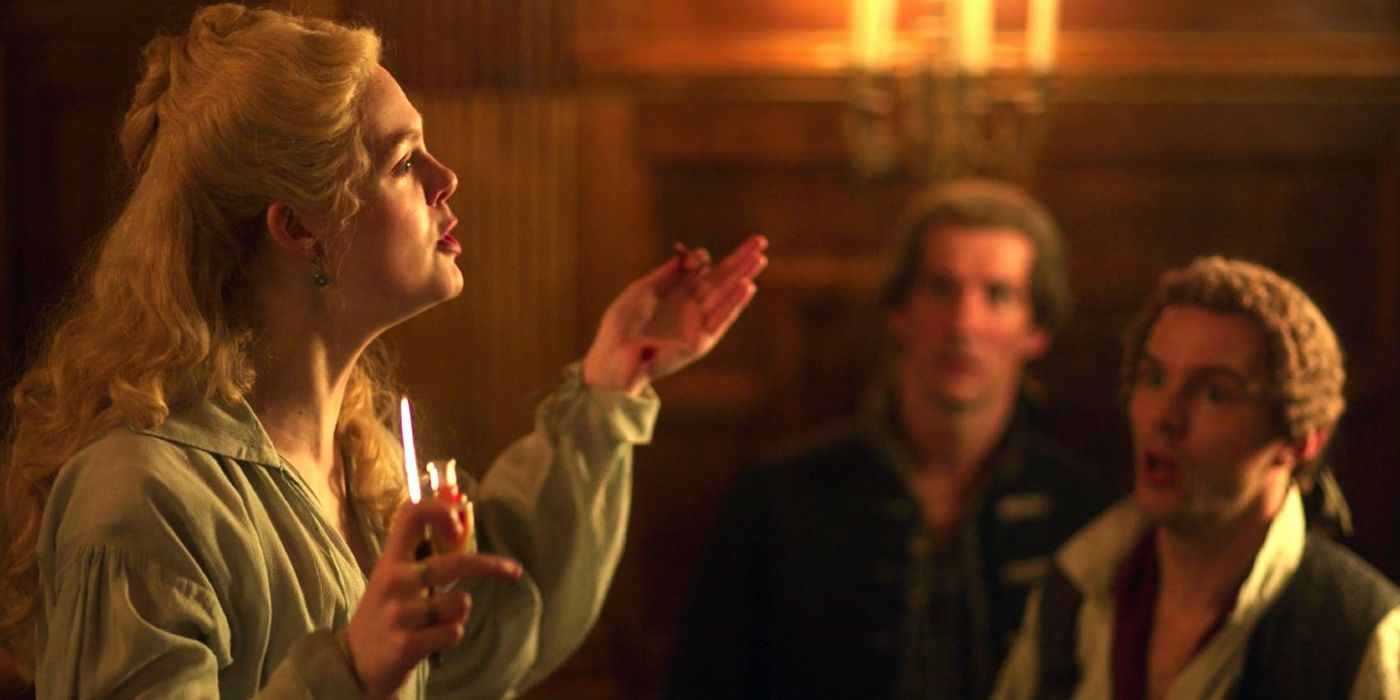The Great, currently streaming on Hulu, follows the somewhat true tale of Catherine the Great’s rise to power. It does say that it is an occasionally true story, and audiences often have difficulty differentiating between what is fact and fiction. The creators have managed to include various aspects of her life into a single tale that puts a unique spin on this incredible woman. Understanding what is historically accurate regarding the various characters and events in any period show can be difficult, and many viewers may be inclined to think that most of what they’re watching is accurate when it’s not.
In the case of The Great, the show got a surprising amount of historical details correct. With the third season of The Great now over, it’s a perfect moment to revisit the hit historical period show. How accurate is The Great? In totality, not a lot. However, many of the broad strokes of Catherine the Great’s life and reign were taken from historical accounts for the Elle Fanning-led series. While the black comedy-drama series is quite open with its fantastical artistic interpretations of Russian historical events and characters, there are some things about the series that are grounded in real historical facts.
Peter III Struggled With Alcoholism
One surprising historically accurate piece of The Great has to do with Peter’s consumption of libations. Audiences watching The Great are aware that Peter III is constantly seen with a glass in hand and often in attendance of some wild parties. This was historically accurate (via Britannica) as the real Peter II struggled with alcoholism, and this show helps depict this side of him very well. He is also described in historical texts as being quite neurotic, which the show also portrays as he has an affinity to kill rather than seek out the truth.
Catherine The Great Was Well-Read
At the time of her reign, most women weren’t allowed to be well-educated. However, Catherine the Great was a well-read woman as she enjoyed various texts throughout her life, especially ones that would guide her as a future empress (via Britannica). This is depicted within the series, as she was always seen with a book in hand and even helped teach a young serf how to read. It also spoke of her intelligence and likability as one of The Great‘s best characters as much of what she read helped her create plans and ideals that she would one day instill in Russia.
Ivan VI Was Really Killed
Something else that The Great gets right is Ivan the VI’s death, however, he didn’t quite bite the dust in the same way as The Great shows. Audiences first met Ivan VI when rumors circulated in the show that Peter III’s half-brother was still alive and could stake a claim to the throne. He was killed during the coup that put Catherine the Great into power, but not in the way that the show depicts. In reality (via Britannica), Ivan VI was in his twenties when those against Catherine’s rule attempted to break him out of the prison he was being kept in. Unfortunately, this ended in his death.
Catherine The Great Wanted To End Serfdom
Catherine the Great’s reign caused some serious upheaval. When Peter III fell ill, Catherine the Great had her first taste of power. With this newfound position and authority, she mentioned her desire to end serfdom. The council laughed at her and explained the economic consequences it would have on their society. This relates back to the real ruler as it was her desire to end this practice (via Britannica), but in the end, it wasn’t a practical goal. She needed the support of the nobles who owned them to stay in power, and she eventually even strengthened the system that she originally sought to destroy.
Catherine The Great Loved European Philosophy
It was already mentioned how Catherine the Great loved to read, but many of her choices focused on the philosophers of the Age of Enlightenment. This is another historical accuracy that The Great offers to audiences, as European philosophy played a huge part in her reign. The Great had her even meeting one of her favorites — the French writer and philosopher Voltaire — and she often mentions several others throughout the series. It is also historically accurate that these European philosophers helped to shape the reforms that she attempted to implement in Russia.
Peter III Wanted To Be A Great Military Leader
Peter III has done some truly terrible things in The Great. He’s also depicted as someone who’s yearning for any sort of military win and accomplishment, which is exactly how he was during his life as well (via Biography.com). One of the biggest historical accuracies in The Great is Peter’s ambition to become a military hero. He wanted to be a military legend who won battles and had numerous victories that proved his worth as emperor. The show even has Peter III taking medals from Velementov to make himself look more successful than he actually is in this endeavor.
Catherine The Great Gained The Support Of The Military & Nobility
A major part of the coup that Catherine the Great planned throughout The Great involved her obtaining the support of various groups. The two most prominent who enabled her to take power were the military and nobility, which is historically accurate (via Biography.com). The real empress made sure to secure the military by having an affair with one of the officers who ensured her rise to power. She also had the nobility already under her control, as actual historical fact shows that she had already been married to Peter III for years before he became emperor, although, he was forced out in just six short months.
Catherine The Great Had A Lover
Leo Voronsky features in The Great as Catherine’s lover, but the truth is that she had several throughout her lifetime (via Britannica). Leo himself did not exist, but history does tell that she had at least three different lovers, making this part of the story historically accurate. It could be said that Leo is just a summary of these suitors rather than any specific man. It was already mentioned how she was having an affair with a military officer during the time of her coup, and that man was named Gregory Orlov, who is the most prominent in her historical love life.
Catherine The Great’s Heir Was Named Paul
Catherine the Great ended up having three children over her lifetime, but one of the historical accuracies in The Great was the name of her trueborn heir. The final episode of season one of The Great shows a pregnant Catherine the Great, and she mentions to Peter III how she will name him Paul. This is historically true (via Biography.com) as her firstborn son was in fact named this, although many speculate whether it was actually Peter III’s heir. He eventually became the emperor following Catherine the Great’s reign, and he didn’t make it five years before he was assassinated by the nobility.
The Coup Had Peter Abdicating His Throne
The entire focus of The Great is Peter III’s fall from grace as he is forced to abdicate his throne and have his wife Catherine rule in his stead. One of the biggest historical accuracies seen in The Great is the successful coup in season 1, resulting in Peter III stepping down. Peter III was forced from his position as he abdicated his throne, which is exactly what Catherine the Great suggested he do at the end of The Great’s final episode of season one (via Britannica). The coup itself didn’t quite go down the same way that it did in history, but the end result was the same.
Pugachev’s Rebellion Really Happened
While the real Pugachev wasn’t a double for Peter III, disguising himself as Peter III and inciting the rebellion depicted toward the end of The Great season 3 really did happen (via Britannica). Unlike the series, Yemelyan Pugachev never served Peter III and was a soldier in the Seven Years War. Though he was imprisoned for escaping the army, he managed to wriggle out of prison as well and appeared east of the Volga River. Claiming to be Peter III, Pugachev declared that serfdom was abolished and gained a following in planning to upend Catherine’s reign. During his siege on Orenburg, Catherine sent an army, and he was subsequently defeated.
Catherine The Great Was A Target Of Gossip
One thing that’s historically accurate in The Great is the misogynistic narrative that undermines Catherine’s leadership. Much like in the series, Catherine the Great was the subject of constant gossip and lies, some of them ranging from believable to far-fetched, like the rumor that she died by trying to have sex with a horse (via Time). Since being a woman in power was so unheard of at the time, rumors ran rampant about her personal life and sexual exploits. It was so prevalent that Catherine the Great decided to write her own series of memoirs to dispel the rumors that would assuredly crop up after her death.
Peter III Really Died After Catherine Took Over
Peter III’s death in The Great season 3 was a shocker for audiences — but not for those who know history. While the means and method of his death in The Great diverged greatly from history, Peter III did pass away shortly after Catherine took the throne and prior to Pugachev’s Rebellion (via Britannica). In the series, Peter III drowns while trying to cross a frozen lake. In real life, Peter III was arrested after his abdication. While in custody with one of Catherine’s conspirators, it is stated that Peter III died of an apoplectic stroke. However, the mysterious nature of his demise also points to Peter III being assassinated.
Catherine The Great Was Passionate About Women’s Education
Early on in The Great, Catherine approaches the royal court with numerous ideas for educational reform, including building a school that would educate women. As soon as Peter III realizes that this is her goal, he shuts it down immediately. While the incident itself may not have happened, Catherine the Great’s passion for educating women is historically accurate. In 1764, Catherine the Great established the Smolny Institute for daughters of noble birth in St. Petersberg, which was the first educational institution for women in Russia (via Time). Catherine the Great was largely responsible for the Westernization of Russia, and education reform was one of her biggest pillars.
Catherine Launched Inoculation In Russia
In season 1 of The Great, the royal court experiences a smallpox outbreak and Catherine hears about a treatment called inoculation. She inoculated herself in front of the royal court, only to have Peter III ban inoculation shortly thereafter. In reality, Catherine was a lover of science and was particularly impressed with the work of the British-based Dr. Thomas Dimsdale, who was working on a smallpox vaccine. She had Dimsdale travel to Russia to give both her and Paul the vaccine. This caused a domino effect, and according to Robert K. Massie’s Catherine the Great: Portrait of a Woman, by 1800 over 2 million Russians had been vaccinated.
This story originally appeared on Screenrant

